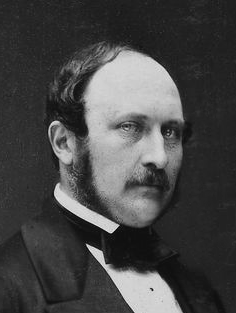 W
WPrince Albert of Saxe-Coburg and Gotha was the husband of Queen Victoria of the United Kingdom of Great Britain and Ireland.
 W
WArchibald Arnott was a British Army surgeon best remembered as Napoleon's doctor on St. Helena, who was present at the Emperor's autopsy. In his retirement he returned to Ecclefechan, where he is buried.
 W
WChristopher Hiley Ludlow Bathurst, 3rd Viscount Bledisloe, QC was a British barrister and politician.
 W
WSir Antony James Beevor, is a British military historian. He has published several popular histories on the Second World War and the 20th century in general.
 W
WLord William Henry Cavendish-Bentinck, known as Lord William Bentinck, was a British soldier and statesman. He served as Governor-General of India from 1828 to 1835. He has been credited for significant social and educational reforms in India including abolishing sati, suppressing female infanticide and human sacrifice. Bentinck said that "the dreadful responsibility hanging over his head in this world and the next, if… he was to consent to the continuance of this practice (sati) one moment longer." Bentinck after consultation with the army and officials passed the Bengal Sati Regulation, 1829 there was little opposition. The only challenge came from the Dharma Sabha which appealed in the Privy Council, however the ban on Sati was upheld. He ended lawlessness by eliminating thuggee – which had existed for over 450 years – with the aid of his chief captain, William Henry Sleeman. Along with Thomas Babington Macaulay he introduced English as the language of instruction in India.
 W
WGeneral John Burgoyne was a British army officer, dramatist and politician who sat in the House of Commons from 1761 to 1792. He first saw action during the Seven Years' War when he participated in several battles, most notably during the Portugal Campaign of 1762.
 W
WLieutenant-General James Thomas Brudenell, 7th Earl of Cardigan, was an officer in the British Army who commanded the Light Brigade during the Crimean War. He led the Charge of the Light Brigade at the Battle of Balaclava.
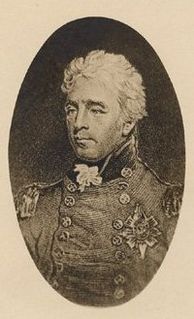 W
WGeneral Charles Murray Cathcart, 2nd Earl Cathcart, styled Lord Greenock between 1814 and 1843, was a British Army general who became Governor General of the Province of Canada. He was a keen amateur geologist, with enough recognition to warrant being made a Fellow of the Royal Society of Edinburgh.
 W
WGeneral Sir Arthur Benjamin Clifton KSA KSW was a British soldier who fought in the Peninsular War and commanded the Second Union Cavalry Brigade at the Battle of Waterloo on 18 June 1815.
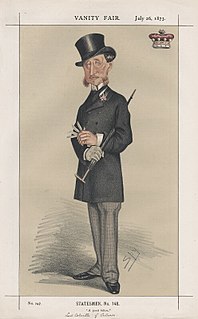 W
WCharles John Colville, 1st Viscount Colville of Culross,, known as The Lord Colville of Culross between 1849 and 1902, was a British nobleman, Conservative politician and courtier.
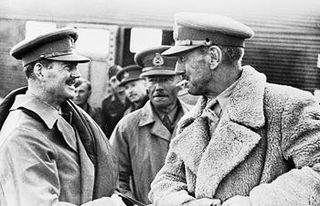 W
WMajor General John Frederick Boyce Combe was a British Army officer before and during the Second World War. He was twice awarded the Distinguished Service Order for his service in the Western Desert Campaign before being captured in April 1941 and spending nearly two and a half years as a prisoner of war in Italy. Released in September 1943 when Italy withdrew from the Axis, he made his way back to Allied territory and from October 1944 until the end of the war commanded an armoured brigade.
 W
WGeorge Hamilton Chichester, 3rd Marquess of Donegall, styled Viscount Chichester until 1799 and Earl of Belfast between 1799 and 1844, was an Anglo-Irish landowner, courtier and politician. He served as Vice-Chamberlain of the Household from 1830 to 1834, as well as from 1838 to 1841, and as Captain of the Yeomen of the Guard between 1848 and 1852. Ennobled in his own right in 1841, he was also Lord Lieutenant of Antrim from 1841 to 1883 and was made a Knight of St Patrick in 1857.
 W
WAlexander Roberts Dunn VC was the first Canadian awarded the Victoria Cross, the highest and most prestigious award for gallantry in the face of the enemy that can be awarded to British and Commonwealth forces. He was the first Canadian to command a British Army regiment.
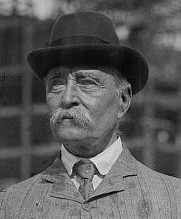 W
WColonel Sir Augustus Charles Frederick FitzGeorge was a British Army officer and a distant relative of the British royal family. FitzGeorge served as an aide-de-camp to General Robert Napier, 1st Baron Napier of Magdala, Commander-in-Chief of India (1870–1875) and accompanied Albert Edward, Prince of Wales during his visit to India (1875–1876). FitzGeorge also served as aide-de-camp to Lieutenant-General Sir Archibald Alison, 2nd Baronet, and served as the private secretary and equerry to his father, Prince George, Duke of Cambridge, Commander-in-Chief of the Forces.
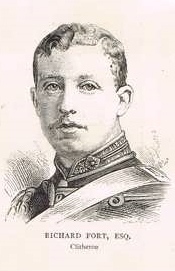 W
WRichard Fort was an English Liberal politician who sat in the House of Commons from 1880 to 1885.
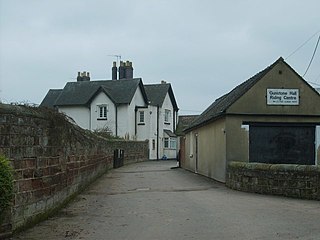 W
WLieutenant General Thomas Fowke, also spelt Foulks, circa 1690 to 29 March 1765, was a British military officer of the 18th century. He was Governor of Gibraltar from 1753 to 1756, and twice court-martialled during his service.
 W
WLieutenant-General Sir Charles Craufurd Fraser was a British recipient of the Victoria Cross, the highest and most prestigious award for gallantry in the face of the enemy that can be awarded to British and Commonwealth forces. He was also a Conservative politician.
 W
WGeneral Thomas Gage was a British Army general officer and colonial official best known for his many years of service in North America, including his role as British commander-in-chief in the early days of the American Revolution.
 W
WGeneral William Gordon, of Fyvie, was a British general and courtier. He was several times returned to Parliament by the interest of the Duke of Marlborough, and precipitated a family quarrel with his nephew, the Duke of Gordon, by commandeering a regiment that the latter was raising.
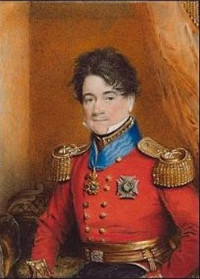 W
WGeneral Sir Thomas Hawker KCH was a British Army cavalry officer. Hawker began his career in the 11th Light Dragoons in 1795 and fought with them during the 1799 Anglo-Russian invasion of Holland. In 1804, he purchased the rank of major with the 20th Light Dragoons and served with them in Spain during the Peninsular War. He was promoted to command of the regiment in 1808. Hawker served in the force sent to occupy the Republic of Genoa in 1814 and shortly after was promoted to colonel and given command of a light cavalry brigade. Spending some time on half pay after the end of the Napoleonic Wars he returned to active service as lieutenant-colonel of the 13th Light Dragoons. Hawker was in the East Indies between 1822--26 and 1830-36 and was promoted to major-general in 1825. He was appointed a Knight Commander of the Royal Guelphic Order in 1837 and colonel of the 6th Regiment of Dragoon Guards in 1839. Hawker was promoted to the brevet rank of general in 1854.
 W
WField Marshal Studholme Hodgson was a British Army officer who served during the 18th century. After serving as an Aide-de-Camp to the Duke of Cumberland at the Battle of Fontenoy during the War of the Austrian Succession and at the Battle of Culloden during the Jacobite Rebellion, he became correspondent to William Barrington, the Secretary at War, during the French and Indian War. He went on to command the British expedition which captured Belle Île in June 1761 during the Seven Years' War so enabling the British Government to use the island as a bargaining piece during the negotiations leading up to the Treaty of Paris in 1763.
 W
WMajor Samuel Hill Lawrence VC, born in Cork, was an Irish recipient of the Victoria Cross, the highest and most prestigious award for gallantry in the face of the enemy that can be awarded to British and Commonwealth forces.
 W
WGeneral William Henry Kerr, 4th Marquess of Lothian was a Scottish nobleman, British soldier and politician, the eldest son of William Kerr, 3rd Marquess of Lothian. He was styled Master of Jedburgh until 1722, Lord Jedburgh from 1722 to 1735, and Earl of Ancram from 1735 to 1767. As the Earl of Ancram, he distinguished himself during the War of the Austrian Succession.
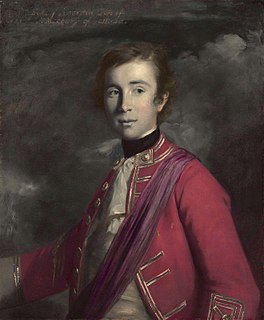 W
WGeneral William John Kerr, 5th Marquess of Lothian was a British soldier and peer, styled Lord Newbottle until 1767 and Earl of Ancram from 1767 to 1775.He was buried at St Andrew's parish Church,Farnham,Surrey on January 19th 1815.
 W
WPrince Michael of Kent, is a member of the British royal family, younger brother of Prince Edward, Duke of Kent. He is a paternal first cousin of Queen Elizabeth II, being a grandson of King George V and Queen Mary. Through his mother, Princess Marina of Greece and Denmark, he is also a first cousin once removed of Prince Philip, Duke of Edinburgh. Prince Michael is currently 48th in the line of succession to the British throne, but at the time of his birth was seventh in the line of succession.
 W
WLieutenant-General Charles Willoughby Moke Norrie, 1st Baron Norrie,, was a senior officer of the British Army who fought in both World Wars, following which he served terms as Governor of South Australia and the eighth Governor-General of New Zealand.
 W
WLieutenant-General Sir Roger William Henry Palmer, 5th Baronet (1832–1910) was a senior officer in the British Army and the Anglo-Irish Conservative MP for Mayo. Sir Roger was the last of the Palmer baronets of Castle Lackin, Co. Mayo, who owned, in addition to some 115,000 acres of land, Kenure House, Rush, County Dublin, Castle Lackin in Mayo, Cefn Park in Wrexham and Glenisland House in Maidenhead.
 W
WNicholas Courtauld Rayner was a British Army officer with the 11th Hussars and later jewellery expert and auctioneer. In 1965 he briefly held the record for the Cresta run. He was head of Sotheby's Geneva office and received international publicity when he sold the Duchess of Windsor's jewellery collection there in 1987.
 W
WLawrence Roger Lumley, 11th Earl of Scarbrough, was a British Conservative politician and British Army general.
 W
WSir James Wallace Sleigh CB (1775–1865) was an officer of the British Army. He rose to be a general, and fought with Wellington at the Battle of Waterloo.
 W
WSir Arthur Nicholas Winston Soames, usually known as Sir Nick Soames, is a British Conservative Party politician who served as the Member of Parliament (MP) for Mid Sussex from 1997 to 2019, having previously served as the MP for Crawley from 1983 to 1997.
 W
WColonel John Donald Hamill Stewart, CMG (15 October 1845 – 26 September 1884) was a British soldier. He accompanied General Gordon to Khartoum in 1884 as his assistant. He died in September 1884 attempting to run the blockade from the besieged city at the hands of the Manasir tribesmen and followers of Muhammad Ahmad Al-Mahdi.
 W
WJohn Cranch Walker Vivian was an English Liberal politician from the Vivian family who sat in the House of Commons variously between 1841 and 1871.
 W
WSir Patrick Warrender of Lochend, 3rd Baronet was a Scottish soldier and politician.
 W
WLieutenant-Colonel Guy Greville Wilson, was a British soldier, company director, and Liberal Party politician from Kingston upon Hull. His family owned Thomas Wilson Sons & Co., which was once the largest private shipowning concern in the world.
 W
WLieutenant Colonel Alfred Daniel Wintle MC, better known as A.D. Wintle, was a British military officer in the 1st The Royal Dragoons who served in the First and Second World Wars. He was the first non-lawyer to achieve a unanimous verdict in his favour in the House of Lords, and is considered one of London's greatest eccentrics.
 W
WGeneral Sir Henry Wyndham KCB was a British Army General and Conservative Party politician. He was Member of Parliament (MP) for Cockermouth from 1852 to 1857 and for West Cumberland from 1857 until his death in 1860.